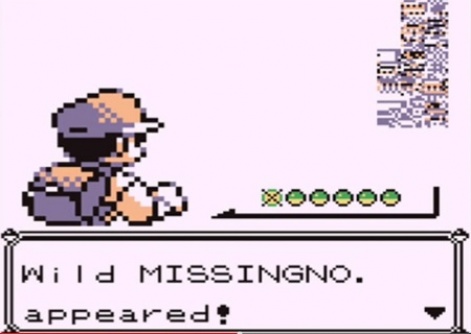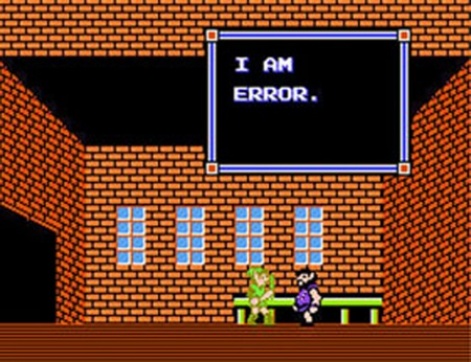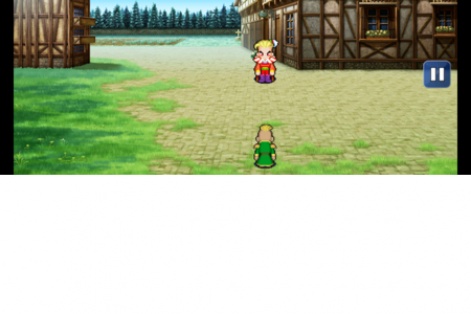Even the most prolific developer on the planet pushing out the most potent IP can be brought back down to earth by a game-breaking bug sneaking into a live release.
We check, we double check, we pay QA departments a tidy sum of money to smoke test every gameplay option, but somehow and in some way a game-breaking bug will make it out into the wild.
Such bugs aren't necessarily the result of a lack of budget, either, as Square Enix's Android port of Final Fantasy VI recently proved.
Indeed, it was while attempting to battle through FFVI's bugs that we pondered the idea of a best practice guide for developers to turn to in times of bug-initiated crises.
Surely, someone somewhere must have put together a go-to guide for the best steps to take when reacting to the discovery of a bug?
Apparently not. As a result, we turned to a diverse panel of industry figures - some who have experienced such a situation first hand - to serve up their best practices if you find a game-breaking bug causing havoc in a live release.
'Nobody is going to die'
The first to consider before forming a response plan is to take a few breaths and focus on maintaining perspective.
"You absolutely have to avoid taking big game-breaking bugs personally," Lost Toys co-creator Danielle Swank cautions.
"Having a bug is not a personal indictment of you, your work or your fitness as a human being. It's probably not even an indictment of your game. It's just a bug. It will get fixed. Nobody is going to die IRL because of it."
Rob Dodd, technical director for The Room's Fireproof Studios, also urges patience
"Bear in mind that getting a fix out to your players is going to take at best hours - if it's Google Play - or possibly days if you're on iOS, and you've run out of expedited reviews. Grab a coffee, cigarette or whisky, take a breath, and have a think about your best approach to fix it."
"It isn't going to make much difference to the time it takes, but could make a big difference to whether you compound the error."

Pocket Gamer's recommended anti-stress kit
Of course, not everyone recommends proceeding with an even keel. Muteki Corps' Adam Rippon is staunchly in favour of a moment of catharsis.
"First, panic. Let it all out, 'cause youre in for a rough couple of weeks. Then after you've gotten that out of your system, get cracking. Fix the bugs."
Regardless of whether you choose to panic or numb your pain, you should - hopefully - be calm and ready to carry on within a few hours of learning about the bug's existence.
Patrick Walker, senior analyst at industry research firm EEDAR, recommends your first step at this point is to gather data so you can make informed decisions.
"A short period of time should be spent to gather as much information as possible, especially player behaviour analytics that can help evaluate the scope and impact of the bug," he details.
"Then a strategy for shifting resources and messaging consumers can be created."
Efim Voinov, co-founder and CTO of Cut the Rope studio ZeptoLab, recommends a similar course: "It's important to immediately analyze existing data, which includes user feedback, crash reports, and forum posts, to estimate replicability.
"This will help define the proper hot-fix strategy, which, depending on the particular situation, might include using available backend solutions to address the bug - for example, disable the ad network if it's causing the problem - or changing the game's description to notify users about the issue and upcoming fix."
Send the right message
So far, your best hopes lie in taking a breath and gathering as much data as possible - but in cases like this, it's sometimes what you don't do that helps you come out on top of a bad situation.
In the age of social media, it's tempting - and often healthy - to engage with players immediately to provide them with updates, but social media can do as much harm for your calm as it can help your cause, as Dragon Fantasy creator Rippon attests.
"Don't let the commenters on the internet get to you," he says. "It's amazing the vitriol that gets directed at devs when a game crashes - yes, it is super, super annoying. And yes, ideally we would catch all the bugs. But I've got death threats because of bugs in my games - it is absolutely insane."
Assuming your skin's tough enough to wade into forums and social media to address your bug - and it should be - EEDAR's Walker still advocates proceeding with caution.
"The developer needs to be careful to be honest with the community about the effort and timeline for the bug fixing process.
"Giving unrealistic timelines can help mitigate short term discontent, but will damage the relationship with the community in the long run."
Pac Man, Namco
"Address the issue with urgency, but be thorough," echoes Zeptolab's Voinov, before noting that "delaying the fix update too much can affect ratings, reputation and fan loyalty, yet excessive haste without proper QA could introduce new bugs into the build."

Fireproof's Dodd suggests seeking others to help shoulder the burden of communication with players.
"You can normally update the app's description very quickly, so acknowledging the problem there, and letting people know you're working on it, might be a good idea. In other cases, maybe just being ready to reply to lots of emails will be enough," he clarifies.
"If at all possible, get someone else to deal with the public - email, Facebook etc. - while you concentrate on fixing it,"
But there's also value in the developer wading in themselves. Rippon recommends doing a mass blast of your message to cover as many channels as possible.
"Communicate, communicate, communicate," he claims. "Tell the world you're fixing it. Spend 30 minutes to get on every forum and say 'hey guys, I made the game, I'm sorry it's buggy, and I promise you we're working on it!'"
And, as a final word on the matter, Dodd also urges iOS developers to be careful how they define an emergency.
"Remember that iOS has the expedited review process purely for issues like this. You only get a limited amount of them, so don't use them for non-emergencies, but in an crisis they'll generally get your submission time down from a week to 24 hours."
Making the most of a bad situation
Although it seems antithetical, you can potentially use a bug - even a game-breaking one - to your advantage.
While some players will invariably write you off based on the presence of a bug, others might become more willing to trust you down the road assuming that you handle the patching correctly.
Patrick Walker sees this opportunity only increasing as games switch from the "fire and forget" days of old to the new games as a service model.
"A negative event is an opportunity to build trust between the players and developer," he says. "In my mind, the relationship between the Minecraft team and the Minecraft players is the pinnacle of this relationship.
"The Minecraft community is very forgiving of bugs in new updates because of the strength of the relationship with the development team and the feeling of a collaboration."
This collaboration and exchange is particularly rewarding in the indie scene, as Rippon notes, "releasing a buggy game hurts your reputation, but that patching it quickly and keeping your users abreast of your progress via social media and forums and the like goes a long way towards repairing it."
"Sometimes people get pretty excited that a developer actually cares enough to respond to their issues," he continues. "Often times that's not the case with large developers, so it's one of the few places where indies have a real opportunity that others don't."
Pokemon Red and Blue, Game Freak
Fireproof's Dodd sees customer service as key to how you can manage this.
"Speaking as a coder, I'd say your priority should be damage limitation. You've just shipped a game-breaking bug to your paying customers, and you're reputation is - rightly - going to suffer a bit," details Dodd.
"You're not going to come out of it smelling of roses, but you might be able to mask the stench a little with some great customer service.

"Reply quickly to complaints, and be honest and apologetic: You're devastated that you let this happen. You're working incredibly hard to get a fix out to everyone, and you're unbelievably grateful for the patience and understanding of your customers. Most people will understand."
While there's a definite value in sending the right message to players, Swank - a former volunteer firefighter - believes the worst thing you can do is stay silent when a bug's reported
"Bugs don't break player trust," he begins. "Most people realise that game development is really really hard.
"Things are almost always buggy and broken, and it's more surprising that things work at all - ever. Not responding to bugs and-or not treating your players fairly is what breaks trust, not the bugs themselves."
Swank also notes, with a dash of cynicism, that "potential opportunities could come from increased communication with players, but that's an advantage that someone in a boardroom sees - not someone working without a roadmap in the small hours."
Impacts on retention
Regardless of what type of bug made it into your game and how you initially handle it, there will invariably be a wave of players looking for the exits.
What impact this bug-fueled exodus has on retention, however, depends on your specific type of game.
"Player reaction to bugs depends on the business model and the player's investment in the game," begins Walker.
"Players tend to get angry when they are heavily invested in a game because they have given their time or their money, and simply quit the game if they are less invested. Therefore, bugs are a major reason for low review scores in premium games.
"For a F2P game, early stage players will simply quit the game, so there is no question that bugs lower retention, especially early retention."
Swank, meanwhile, urges that you try to understand where players are coming from in this situation.
"Bugs are never pleasant. They interrupt the flow and take players abruptly out of the game world, and you will lose some of those players for good. I don't blame players for an angry reactions."
Zelda II: The Adventure of Link, Nintendo R&D4
After quipping that the initial player reaction might seem "like it's World War Nine", Rippon notes that the "people who casually downloaded your game will probably disappear and be gone forever, but the people who were actually excited about it will stick around - especially if you make an effort to keep them informed."
There are other options available to help stem the tide of exiting players, however, provided you're not opposed to a bit of compensation.
Be 'aware of the burden the bug created for the player'
Echoing the sentiment of open communication, Patrick Walker is quick to point out that the tone you take in this situation will help determine your success.
"Most importantly, the publisher should use consistent and clear messaging that provides honest status updates about the bug fixing process with a contrite tone," he says.
"Beyond that, the publisher should look for a way to compensate players for their trouble. Ways to do this include providing a currency bonus, a special sale, or some other bonus or giveaway to players shows the player the developer truly cares about their experience.
"The gifting of hard currency or free random item drops are ways to show the developer is aware of the burden the bug created for the player."

Final Fantasy VI (Android) and the bug that inspired this piece, Square Enix. The bottom half of the screen is missing.
Rob Dodd agrees with this approach, but goes a step further in recommending refunds.
"If it's a paid app, be quick to offer a refund - and point out that it doesn't mean they can't play any more," he concludes.
"I'd much rather refund a few purchases than have the same number of bad reviews on the store. I'd guess the situation is different with FTP, but giving away free stuff probably isn't a bad idea."
If this sounds like basic damage remediation - that's not a coincidence. With an air of nonchalance, Swank summarises the best way for you to approach a bug be it major or minor.
"I don't think dealing with a major catastrophic bug is any different than dealing with any other major catastrophic event, you let people know what's going on and then you fix it to the best of your ability."
Of course, it's important to learn from your mistakes, too, which is perhaps the most valuable lesson you can take away from a buggy situation according to Zeptolab's Voinov.
"The best thing to do, besides fixing the bug as soon as possible, is to avoid such problems in the future by thoughtfully analysing the situation and creating an immediate action plan to improve development."
You're not alone
If you found your way to this page in a panic following a bug, hopefully you've realised by now that you're not the first developer to let a bug sneak into a live release and you most certainly won't be the last.

Sit back, exhale, and maybe grab a whiskey - you're in good company.
But don't sit back and relax for too long, your players are waiting on that fix.
Thanks to Efim Voinov, Rob Dodd, Danielle Swank, Patrick Walker, and Adam Rippon for their time.





















